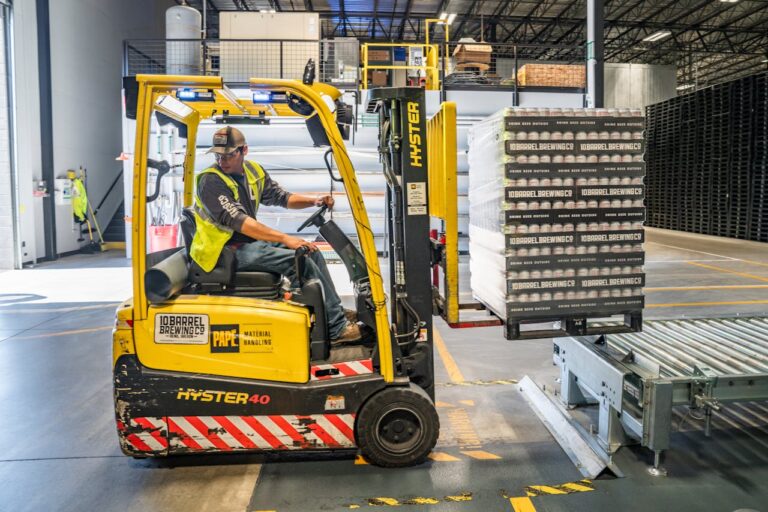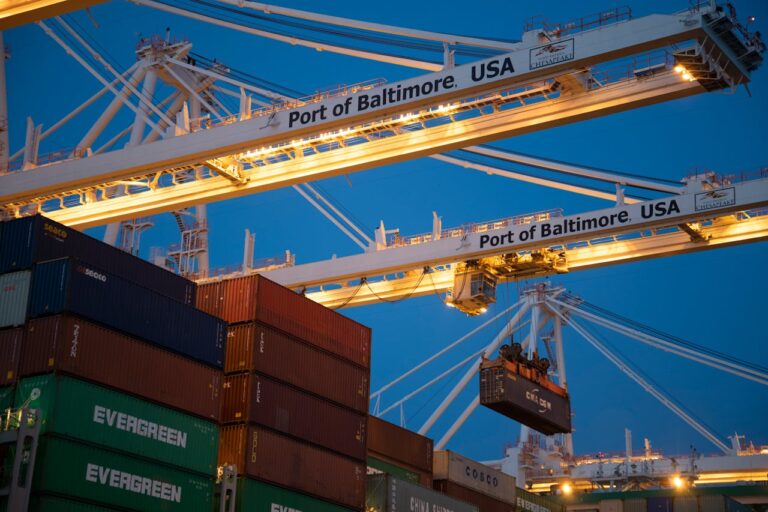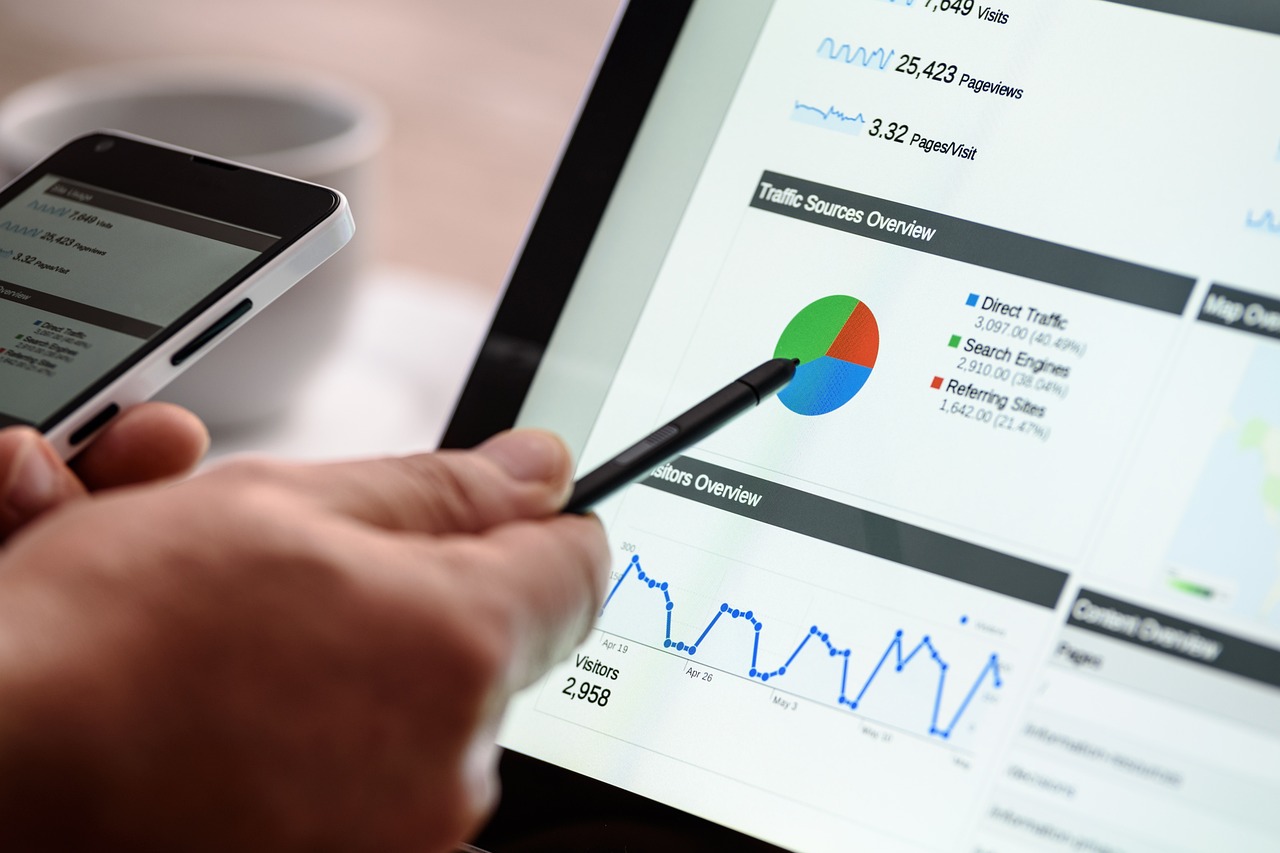Attract More Logistics Clients: Digital Marketing for Logistics
Despite constant changes to the global business market, including the advent of AI and Industry 4.0, logistics, as an industry, is not going anywhere. In fact, experts are predicting the logistics sector to reach $1456.8 billion by 2027. As a whole, the industry is expected to grow at a 5.8% CAGR between 2021 and 2027, leading to a need for both consistent and evolving business development and marketing tactics to capture more of that business.
Where it was once enough to have a basic website and build a brand reputation, a logistics company can no longer rest on its laurels and hope for growth. Proactive and intentional marketing efforts are necessary to even be found, let alone considered.
Add to that the fact that logistics is expected to be the fastest-growing industry between 2023 and 2030, and the competition is only growing more intense. Even though traditional marketing techniques are still valuable and necessary, a strong digital marketing strategy for logistics is necessary to reach a larger audience and demonstrate your competence as an industry expert and leader.
As a digital marketing agency for logistics companies, we understand the challenges a logistics company faces. This article will explore a simple yet solid strategy to enhance your business exposure and attract more clients so you can grow your logistics business.
Table of Contents:
- Understanding Your Target Audience
- Building a Strong Online Presence
- Content Marketing: Educating and Engaging
- Leveraging Social Media for Brand Awareness
- Building Trust through Reviews and Referrals
- Putting Your Digital Strategy into Action
Understanding Your Target Audience
Any digital marketing for logistics strategy should begin with a sound understanding of the target audience. Understanding your audience makes your digital marketing more impactful, as you can address the audience more precisely with meaningful messages that resonate.
LeadForensics shares that “nearly 74% of B2B customers research products online before making an offline purchase.” Understandably, it’s much more effective when the information they find feels personalized to them. Take this article as an example. While BizMatchery works with a few different industries, this article is meant to connect with one of our top target audiences, logistics businesses. Any logistics provider looking to establish strategies for digital marketing for logistics should find this article helpful. While the information is pertinent for most businesses, the fact that it is framed around the logistics industry makes the information more meaningful to that audience.
So, clearly, it’s necessary to understand who you want to reach. It also matters how you want to connect with them and what you can do to alleviate their pain points. By crafting custom messaging for your ideal target audience, you enable your efforts to resonate with the unique challenges and opportunities that exist in their business. This should streamline their efforts in vetting your business as the right solution provider for their needs. Ultimately, this positions your company for more qualified leads that are more likely to convert.
Exactly how should you structure your messaging to connect with your target audience? Here are a few key points to consider:
Research Industry Trends: Investigate your client’s industry and most common pain points. Knowing these pain points will help you design content and communications that connect with them on a more personal level.
Focus on Solutions: Everyone wants to sell and make money, but their is wisdom in the age old adage credited to Teddy Roosevelt that says, “Nobody cares how much you know, until they know how much you care.” Simply put, spend more time talking about them and solutions to their problems than all the ways you can help them. There will be time for that later.
Highlight Case Studies and Testimonials: Case studies and client testimonials show your potential as a partner. Illustrating how you’ve helped similar businesses achieve their goals establishes trust and promotes you as a reliable solution provider.
By understanding your target audience and tailoring your messaging to their needs, you will be able to connect with more people before they ever pick up the phone. That pre-qualifying will set you up for much more success than generic messaging ever will.

Building a Strong Online Presence
Before you ever speak with a prospect, they are likely to have found your website and clicked around. Studies indicate that B2B buyers get through 57% – 70% of their buying research before contacting sales. If you consider this fact, it makes sense that having a well-built and search engine optimized website is vital for success.
Having an SEO optimized website can allow your company to be found at the top of search results, but only if the proper work has been done to position your website there. Without proper optimizations such as meta details, optimized headers, and a logical site structure, not to mention highly educational and informative content, the chances of being found are minimal at best. Additionally, it’s important that search engines can index your site and that it is mobile-optimized with clear calls to action.
Beyond your website, it is important to have claimed and updated your online business listings so they accurately reflect your service offerings. Two of the top listings to ensure you’ve secured are Google Business Profile and Bing Places for Business, which both offer free profiles with extensive details about your business. While these are commonly considered more suitable for local businesses, they substantiate and validate your business as a trusted and professional provider of logistics services.
When it comes to digital marketing for logistics, having a website that is optimized for search engines (SEO) will ensure your logistics company appears at the top of relevant search results. Make sure your website is user-friendly, informative, and clearly showcases the services you offer. Additionally, claim and manage your business listings on relevant online directories like Google My Business to increase your online visibility.
Content Marketing: Educating and Engaging
Content marketing is a key part of any strategy in digital marketing for logistics companies. This is because your content connects with your potential customers long before a human ever does. Well written content will establish your company as a leader in the industry as you deliver valuable information that addresses the needs your customers are facing. This connection will warm them up to speaking with your team, as they have already found value in the information you offer and the role you play in the industry.
Some tips to keep in mind while working to create valuable, industry specific content include:
Develop a Variety of Content: You have so many options to choose from when it comes to creating valuable content for a digital marketing strategy. Blogs are a great way to begin. Add case studies, white papers, eBooks, infographics, and videos to round out your offering. Everyone learns differently, so having a variety of content will allow you to reach more people, no matter their learner type.
Demonstrate Expertise: More than just informing or educating, you should be connecting with your target audience on their level. Logistics companies, for example, care about industry trends, evolving laws and regulations, as well as emerging technology and data analytics. As a digital marketing agency for logistics companies, we know they also care about business development and growth, which is what this article is meant to address.
Compound Your Reach with Email: One simple yet effective way to expand your reach and nurture the connection you make is through ongoing content. Targeted email marketing allows you to stay in touch with interested prospects while further maintaining and establishing your business as an expert in your industry. Long-lasting connections can be cultivated with your audience by offering helpful information and fostering trust through consistent interaction.
Leveraging Social Media for Brand Awareness
More and more businesses are recognizing the necessity of consistent engagement with their audience through social media. Social media is important for both building and enhancing your brand. Even without delving into paid or boosted content, you can consistently show how engaged your business is with industry trends. To use social media effectively, you should consider the following points:
Identify Your Target Platforms: Not all social media platforms are ideal for all types of businesses. Your target customer audience most likely uses one or two platforms more than others. In the logistics industry, LinkedIn is the most prominent platform. In general, LinkedIn appeals to a more professional audience, often with more experience and higher interests than the latest dance trend or political news story. Regular posts as well as targeted articles can build your following quickly.
Create Engaging Content: Speaking of targeted articles, it is wise to remember that simply posting for the sake of posting is not that effective. Your content should be educational, informative, and help inspire your readers to take action. Tips about the changes in the logistics industry, updates to laws and regulations, as well as highlights of events such as natural disasters and war, will help your reader feel up-to-date. They will appreciate you as the source of their information. Not sure what your audience finds most appealing? Perhaps a poll of your existing audience would help guide your direction.
Be Consistent and Interactive: Engage your audience as quickly as possible. That is one of the most important, yet overlooked, aspects of a sound social media strategy. Reply to questions. Respond to messages. Social media is not meant to be stagnant. Rather, it should be a dynamic experience that draws your audience in and engages them with your brand.
These digital marketing for logistics tips and strategies will help your brand establish and strengthen its presence as a leader in the logistics industry. Your experience and expertise can set you apart from the new kids on the block, but only if your target audience knows who you are and can see the depth and quality of your knowledge.

Building Trust through Reviews and Referrals
Referrals and positive online reviews are an important component of any strategy in digital marketing for logistics companies. They are powerful tools for establishing credibility and attracting new business. That being said, they require intentionality and effort. Here are some tips to help encourage more of these from your customers.
Deliver Exceptional Service: Without question, the first step is ensuring that you are delivering the very best services and products possible. For a logistics company, this means consistent and on-time deliveries, without any lost or damaged products. By delivering excellent results, the challenge of securing a review or referral is greatly reduced.
You Have to Ask: Simply put, you will likely never get what you don’t ask for. Make this process simple and painless for your customers. Create links on your website, social media profiles, and follow up emails. Ask them what their thoughts are, and how you can make their next experience even better.
Highlight Testimonials: After you’ve secured positive reviews, you can begin gathering them into a testimonial section on your website. Use quotes on marketing materials and future newsletters. These success stories will likely inspire a curious prospect far more than anything you can say about yourself.
Consider a Referral Program: If possible, create a referral and incentive program where you can reward your customers with discounts on future services or a free gift that aligns with your business if they connect you with other prospects. This creates a win-win-win situation for your customer, their referral, and you.
By actively encouraging positive reviews and referrals, you can build trust with potential clients and establish yourself as a reliable logistics partner.
Taking Action With Your Logistics Digital Marketing
The digital marketing strategies outlined in this article are powerful tools for attracting new clients and propelling your logistics company forward. However, remember that digital marketing for logistics is an ongoing process. The key is to implement these strategies, track your results, and be prepared to adapt and refine your approach over time.
By implementing these digital marketing for logistics strategies, you can attract new clients, build brand awareness, and establish yourself as a leader in the logistics industry. Remember, digital marketing is an ongoing process, so be prepared to adapt and refine your approach based on your results.
Ready to take your digital marketing to the next level? By following this basic digital marketing strategy for logistics companies, you can separate yourself from the pack and stand out as thought leaders in the logistics sector. Let our team of logistics digital marketing experts help you reach your goals.
FAQs
Why is digital marketing for logistics companies important?
Traditionally, logistics companies relied on industry publications and conferences for lead generation. Today, however, customers research and purchase services online. Digital marketing allows logistics companies to reach their target audience directly, showcase their expertise, and build trust.
How can logistics companies measure the success of their digital marketing?
Track key metrics such as website traffic, lead generation, conversion rates, and return on investment (ROI) for your digital marketing campaigns. We use analytics tools to help your company understand what's working and what's not, and make adjustments to your strategy accordingly.
What are the most effective digital marketing channels for logistics companies?
Content marketing: Create informative blog posts, white papers, and case studies that address your target audience's pain points and showcase your expertise.
Search Engine Optimization (SEO): Optimize your website content with relevant keywords to improve your ranking in search engine results pages (SERPs) for logistics-related searches.
Pay-per-Click (PPC) advertising: Use PPC ads on search engines and industry publications to target potential customers who are actively searching for logistics solutions.
Social media marketing: LinkedIn is a great platform to connect with potential clients and industry professionals. Share industry news, thought leadership content, and company updates.
Email marketing: Build an email list and nurture leads with informative email campaigns that showcase your services and special offers.


